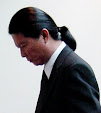THE JUDGMENT OF PETER AND PAUL ON OLYMPUS
As civilisations evolve, beliefs and ideology change with the times as power favours the organised. The Roman empire stretched from England (Wales) to Egypt, encompassing everything in between stretching to Constantinople in the East. The Romans originally believed in Pantheism- the worship of many gods inherited from Greek mythology featuring the promiscuous Zeus and his supporting cast of beautiful heroes. The cast remain somewhat intact just a change of names to Jupiter, Juno, Mars, Mercury, Neptune, Venus, Apollo, Diana, Minerva, Ceres, Vulcan, and Vesta.
It was the Emperor Constantine whose open-mindedness allowed freedom of worship for subjects of the vast Roman empire. He embraced Christianity when he had a dream to paint the symbol of Christianity on the shields of his soldiers. He did and his men won the battle. Also the religion that Jesus preached was in stark contrast to the anger, jealousy and punishment that many of the Roman dieties seemed to encompass.
 |
| The Council of Gods on Olympus by Peter Paul Rubens - The Yorck Project (2002) 10.000 Meisterwerke der Malerei (DVD-ROM), distributed by DIRECTMEDIA Publishing GmbH. ISBN: 3936122202., Public Domain |
THE JUDGMENT OF PETER AND PAUL ON OLYMPUS
A POEM IN PROSE
IT was a night of spring, calm, silvery, and fragrant with dewy jasmine. The full moon was sailing above Olympus, and on the glittering, snowy summit of the mountain it shone with a clear, pensive, greenish light. Farther down in the Vale of Tempe was a dark thicket of thorn-bushes, shaken by the songs of nightingales—by entreaties, by complaints, by calls, by[Pg 56] allurements, by languor, by sighs. These sounds flowed like the music of flutes, filling the night; they fell like a pouring rain, and rushed on like rivers. At moments they ceased; then such silence followed that one might almost hear the snow thawing on the heights under the warm breath of May. It was an ambrosial night.
On that night came Peter and Paul, and sat on the highest grassmound of the slope to pass judgment on the gods of antiquity. The heads of the Apostles were encircled by halos, which illuminated their gray hair, stern brows, and severe eyes. Below, in the deep shade of beeches, stood the assembly of gods, abandoned and in dread, awaiting their sentence.
[Pg 57]Peter motioned with his hand, and at the sign Zeus stepped forth first from the assembly and approached the Apostles. The Cloud-Compeller was still mighty, and as huge as if cut out of marble by Phidias, but weakened and gloomy. His old eagle dragged along at his feet with broken wing, and the blue thunderbolt, grown reddish in places from rust, and partly quenched, seemed to be slipping from the stiffening right hand of the former father of gods and men. But when he stood before the Apostles the feeling of ancient supremacy filled his broad breast. He raised his head haughtily, and fixed on the face of the aged fisherman of Galilee his proud and glittering[Pg 58] eyes, which were as angry and as terrible as lightnings.
Olympus, accustomed to tremble before its ruler, shook to its foundations. The beeches quivered with fear, the song of the nightingales ceased, and the moon sailing above the snows grew as white as the linen web of Arachne. The eagle screamed through his crooked beak for the last time, and the lightning, as if animated by its ancient force, flashed and began to roar terribly at the feet of its master; it reared, hissed, snapped, and raised its three-cornered, flaming forehead, like a serpent ready to stab with poisonous fang. But Peter pressed the fiery bolts with his foot and crushed them to the earth. Turning[Pg 59] then to the Cloud-Compeller, he pronounced this sentence: “Thou art cursed and condemned through all eternity.” At once Zeus was extinguished. Growing pale in the twinkle of an eye, he whispered, with blackening lips, “᾽Ανάγκη” (“Necessity”), and vanished through the earth.
Poseidon of the dark curls next stood before the Apostles, with night in his eyes, and in his hand the blunted trident. To him then spoke Peter:
“It is not thou who wilt rouse the billows. It is not thou who wilt lead the storm-tossed ships to a quiet haven, but she who is called the ‘Star of the Sea.’”
[Pg 60]When Poseidon heard this he screamed, as if pierced with sudden pain, and turned into vanishing mist.
Next rose Apollo, the Silver-bowed, with a hollow lute in his hand, and walked toward the holy men. Behind him moved slowly the nine Muses, looking like nine white pillars. Terror-stricken, they stood before the judgment-seat, as if petrified, breathless, and without hope; but the radiant Apollo turned to Paul, and, in a voice which resembled wondrous music, said:
“Slay me not! Protect me, lord; for shouldst thou slay me, thou wouldst have to restore me to life again. I am the blossom of the soul of humanity; I am its gladness; I[Pg 61] am light; I am the yearning for God. Thou knowest best that the song of earth will not reach heaven if thou break its wings. Hence I implore thee, O saint, not to smite down Song.”
A moment of silence came. Peter raised his eyes toward the stars. Paul placed his hands on his sword-hilt, rested his forehead on them, and for a time fell into deep thought. At last he rose, made the sign of the cross calmly above the radiant head of the god, and said:
“Let Song live!”
Apollo sat down with his lute at the feet of the Apostle. The night became clearer, the jasmine gave out a stronger perfume, the glad [Pg 62]fountains sounded, the Muses gathered together like a flock of white swans, and, with voices still quivering from fear, began to sing in low tones marvellous words never heard on the heights of Olympus till that hour:
To thy protection we flee, holy Mother of God.
We come with our prayers; deign thou not to reject us,
But be pleased to preserve us from every evil,
O thou, our Lady!
Thus they sang on the heather, raising their eyes like pious nuns with heads covered with white.
Other gods came now. Bacchus and his chorus dashed past, wild, unrestrained, crowned with ivy and[Pg 63] grapevine, and bearing the cithara and the thyrsus. They rushed on madly, with shouts of despair, and fell into the bottomless pit.
Then before the Apostles stood a lofty, proud, sarcastic divinity, who, without waiting for question or sentence, spoke first. On her lips was a smile of derision.
“I am Pallas Athene. I do not beg life of you. I am an illusion, nothing more. Odysseus honored and obeyed me only when he had become senile. Telemachus listened to me only till hair covered his chin. Ye cannot take immortality from me, and I declare that I have been a shadow, that I am a shadow now, and shall remain a shadow forever.”
[Pg 64]At last her turn came to the most beautiful, the most honored goddess. As she approached, sweet, marvellous, tearful, the heart under her snow-white breast beat like the heart in a bird, and her lips quivered like those of a child that fears cruel punishment. She fell at their feet, and, stretching forth her divine arms, cried in fear and humility:
“I am sinful, I deserve blame, but I am Joy. Have mercy, forgive; I am the one happiness of mankind.” Then sobbing and fear took away her voice.
But Peter looked at the goddess with compassion, and placed his aged palm on her golden hair, while Paul, bending toward a cluster of white[Pg 65] field-lilies, broke off one blossom, and touching her with it, said:
“Joy, be henceforth like this flower, and live thou for mankind.”
Then came dawn—the divine dawn that looked out from beyond a depression between two peaks. The nightingales stopped singing, and immediately finches, linnets, and wrens began to draw their sleepy little heads from under their moistened wings, shaking the dew from their feathers, and repeating in low voices, “Svit! svit!” (“Light! light!”).
The earth awoke, smiled, and was delighted, because Song and Joy had not been taken from it.












